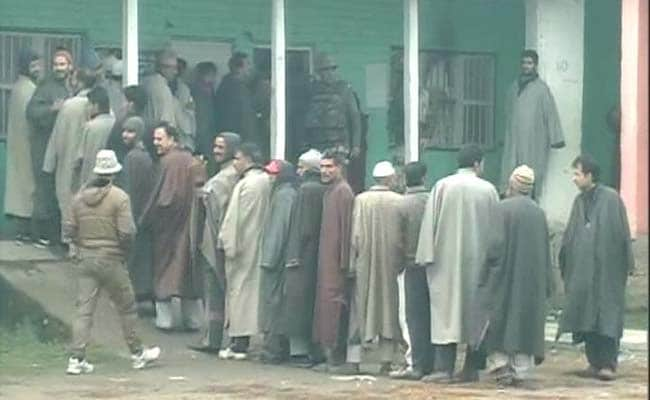
Voting has begun for the first of the five-phase assembly elections in Jammu and Kashmir and Jharkhand today. The BJP, which swept the Lok Sabha elections in May and recently added Maharashtra and Haryana to its kitty, is hoping to win big in both states, where regional parties are in the driving seat. The Congress, which was part of the ruling alliance in both states, broke away in the run-up to the elections - from Jharkhand Mukti Morcha (JMM) in October and the National Conference in Jammu and Kashmir in July.
Here are the latest updates:
In Jammu and Kashmir, this is the first election in 25 years in which boycott calls by the separatists have ceased to matter. A call has been given as a matter of form, but no separatist group has carried out any aggressive campaign to enforce it.
15 of the state's 87 constituencies are going to polls in the first round - four in Ladkah, six in Chenab Valley (the erstwhile Doda district) and five constituencies in Bandipore and Ganderbal districts - where the ruling National Conference and the opposition PDP are locked in a do-or-die battle.
Elections are being held in 13 of the 81 seats in Jharkhand, where the ruling Jharkhand Mukti Morcha is hoping to make a comeback. The party is contesting all 81 seats. But the BJP is hoping to have an edge, having won 12 of the 14 parliamentary seats in the state in May.
For the first time, the BJP has fielded candidates for most of the 87 seats in Jammu and Kashmir. The party, which already has a strong vote-bank in the Hindu-dominated areas of Jammu, hopes to win more than 50 seats. In the Lok Sabha polls, the Congress-National Conference alliance was routed by the PDP and the BJP in all six seats.
As part of its Mission 50+, the BJP has tried to draw in former separatists and fringe groups, which are expected to help divide the Muslim vote, especially in the Kashmir Valley. The party is also counting on the support of the Kashmiri Pandit community.
A fierce battle is expected in Kishtwar, one of the most polarised constituencies, where all senior BJP leaders, including Prime Minister Narendra Modi, had campaigned. The other high-profile constituency, Ganderbal, had been the bastion of the Abdullah family for 40 years. But it lost its shine after Chief Minister Omar Abdullah shifted out to contest from Sonwar and Beerwah.
In Jharkhand, the BJP, which has a tie-up with the All Jharkhand Students' Union (AJSU) and the Lok Janshakti Party, is contesting from 12 seats. During the 2009 elections, the party had a tie-up with the JMM and AJSU and won in 18 seats.
The alliance broke in January 2013, after which the Congress stepped into the breach and formed government with the JMM. The new alliance lasted barely more than a year. In October, it fell through over seat-sharing in the assembly elections.
The Congress has now tied up with the Janata Dal (United) and the Rashtriya Janata Dal. In this round, the Congress is contesting seven seats and the RJD, six.
Polling in both states will end on December 20. Counting of votes will take place on December 23.

